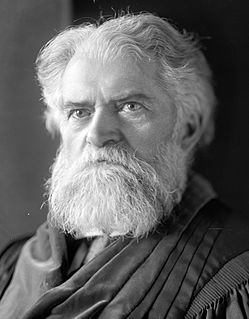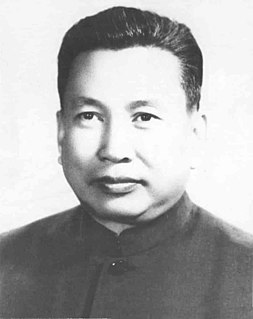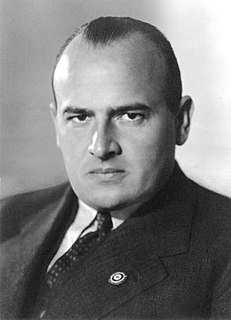A Quote by Simon Newcomb
So far as the economic condition of society and the general mode of living and thinking were concerned, I might claim to have lived in the time of the American Revolution.
Related Quotes
That is the beauty when I discovered the label 'Touched With Fire.' That book defined it for me, I could be that. And we just happen to be living in one age of society that put these various labels on the condition. In Aristotle's time, it was the 'inspired state.' In the Native American cultures, you were the shaman. Labels and language creates realities, even if they are false.
So far as Chairman Mao's own hopes were concerned, he initiated the "Cultural Revolution" in order to avert the restoration of capitalism, but he had made an erroneous assessment of China's actual situation. In the first place, the targets of the revolution were wrongly defined, which led to the effort to ferret out "capitalist roaders in power in the Party". Blows were dealt at leading cadres at all levels who had made contributions to the revolution and had practical experience, including Comrade Liu Shaoqi.
If I ask you who is the most famous scientist who ever lived, or the greatest scientist who ever lived you'll say either Einstein or Newton or something like that because their claims were supposed to apply universally. But the claim of somebody who is studying a particular feature of the evolutionary process like whether it's very fast or very slow, or occurs in steps and so on, that's not a universal claim, that's a rather specialised claim and so you can't claim to great fame and great success.
It’s a revolution. But it’s the sort of revolution that no one will notice. It might get a little shadier. Buildings might function better. You might have less money to earn because your food is all around you and you don’t have any energy costs. Giant amounts of money might be freed up in society so that we can provide for ourselves better. So it’s a revolution. But permaculture is anti-political. There is no room for politicians or administrators or priests. And there are no laws either. The only ethics we obey are: care of the earth, care of people, and reinvestment in those ends.
I was fortunate that by the time I was born, there were a lot of comforts and at the same time I lived in a neighborhood where it was brought to my eyes every single day that people didn't live like me. Every day I knew that many of my friends "got relief." That was important in my thinking about the world, thinking that not everybody lived that way.
When I first saw China, there were no automobiles. There were no supermarkets. There were no high-rise buildings. There were no consumer goods. There were no restaurants that were at least accessible that foreigners could see. It was a Stalinist society, and a very poor Stalinist society. So the economic system has totally changed, and the private sector in the economic system is now the dominant sector. It didn't exist at all as late as 1979.
The claim that myth is always a narrative spin-off of ritual; the claim that myth is the projection of human anxieties onto a cosmological scrim; the claim that myths are invented to give sanction to human predilections and institutions... These are ways of trivializing a mode of thought that has served humanity well for a very long time.
Most Britons still lived and died without encountering anyone whose skin colour was different from their own. Slaves, in short, did not threaten, at least as far as the British at home were concerned. Bestowing freedom upon them seemed therefore purely an act of humanity and will, an achievement that would be to Great Britain's economic detriment, perhaps, but would have few other domestic consequences.







































